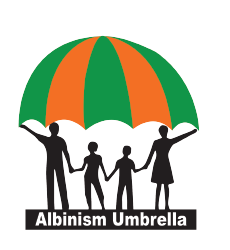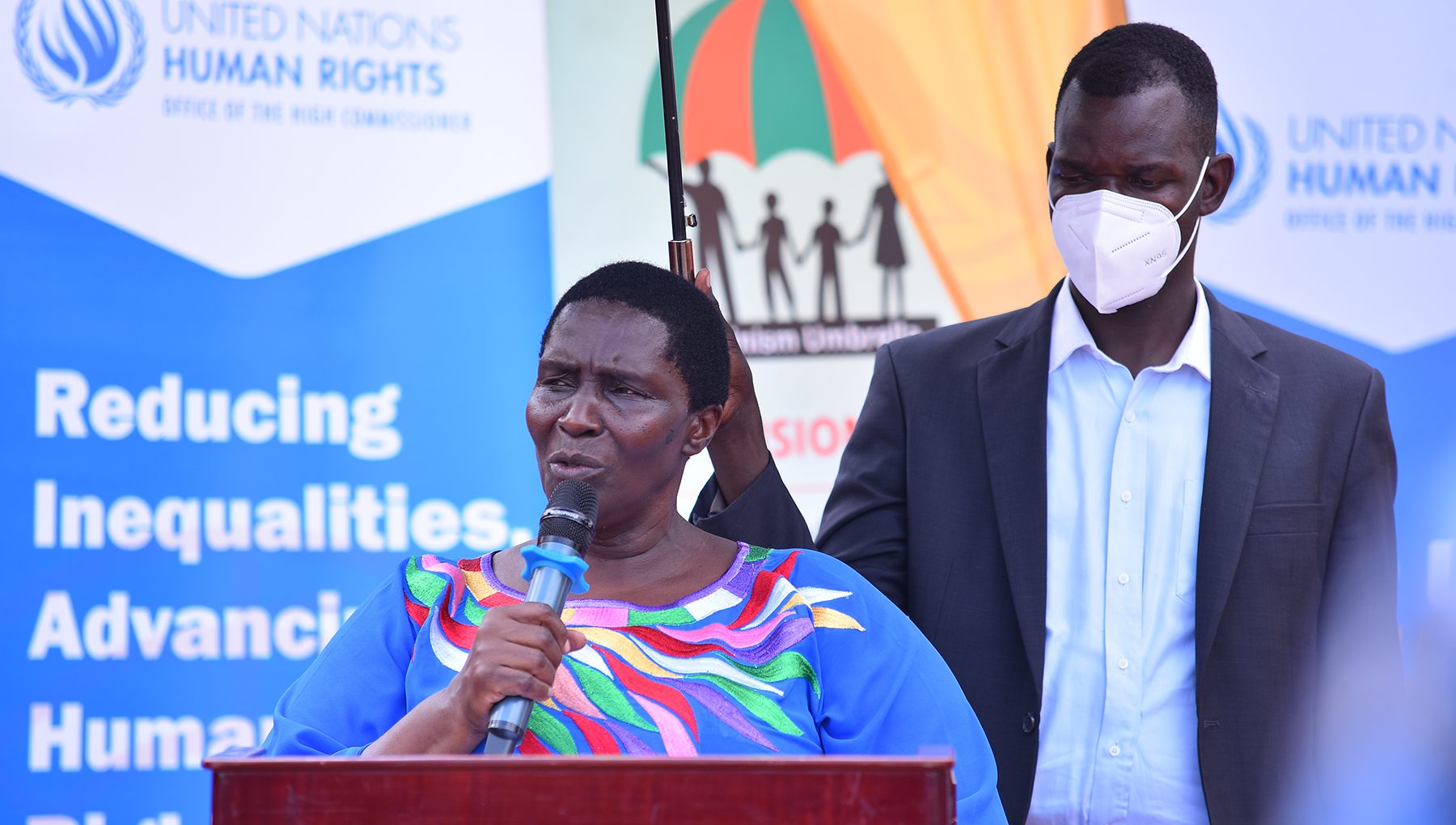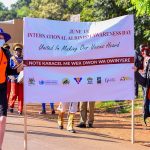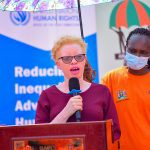- The Country Representative for Office of the High Commissioner for Human Rights
- The Chairperson, Uganda Human Rights Commission
- The Chairperson and Members of the National Council for Persons with Disabilities
- Development Partners;
- Cultural & Religious Leaders
- Government Officials
- Persons with Albinism
- Invited Guests
I greet you all in the name of the Almighty God.
I also bring greetings from the Minister of Gender, Labour and Social Development. On behalf of the Ministry of Gender, Labour and Social Development and on my own behalf, I welcome you to this function where we are celebrating the International Albinism Awareness Day.
Ladies and Gentlemen, the International Albinism Awareness Day is a global day that aims at advancing rights of persons with Albinism while calling for action for the voice of persons with albinism to be heard. On 18th December 2014, the United Nations General Assembly adopted a resolution proclaiming, 13th June with effect from 2015, as International Albinism Awareness Day in an effort to stop the brutalities against people with albinism. Therefore, this June 13th 2022 will mark the 8th International Albinism Awareness Day, an event aimed at ending violence and discrimination against people with Albinism.
Albinism is a rare, non-contagious, genetically inherited which causes lack of pigmentation (melanin) in the hair, skin and eyes, causing vulnerability to the sun and bright light. This condition results into limited sight and being prone to developing skin cancer in some persons. Albinism is much more prevalent in sub-Saharan Africa, with estimates of 1 in 1,400 people being affected in Tanzania and prevalence as high as 1 in 1,000 reported for select populations in Zimbabwe and for other specific ethnic groups in Southern Africa. In Uganda, it’s estimated to be 1 in 2,000 persons.
Ladies and Gentlemen, the global theme for this year “United in making our voices heard” aligns with the objectives of the 2nd Global Disability Summit 2022 “raise global attention and focus on a neglected area” and bring in new voices and approach to broaden engagement. It also echoes the spirit with in which the Sustainable Development Goals (SDGs) were created of “leaving no one behind” which aims at giving a voice and agency to marginalized groups who are at risk of being overlooked in the implementation of SDGs.
Ladies and Gentlemen, Uganda ratified the United Nations Convention on the Rights of Persons with Disabilities in 2008 and provided a broader framework for support to persons with albinism. The convention has progressively been domesticated in the national legal and policy frameworks to support persons with albinism. Notably, in recognition of the uniqueness of albinism, the Government has classified albinism as a form of disability in the Persons with Disabilities Act 2020. This provides an opportunity for amplification of their needs and concerns as provided for under the law.
Ladies and Gentlemen, to enhance inclusion and equality for persons with albinism, there is need to address urgent needs identified by persons with albinism:
- Implementation of the National Action Plan on Albinism. The Action Plan provides a framework for both State and Non-State Actors to undertake interventions aimed at ensuring full inclusion of persons with albinism. The task ahead of us Ladies and Gentlemen is to mobilize resources for the implementation of this plan. I therefore call upon all stakeholders to domesticate the actions in this plan within their routine workplans to support persons with albinism.
- Addition of sunscreens on the National Essential Drug List. The Ministry will work with Ministry of Health to ensure that the sunscreens are added on to the drug list. However, we will need the support of the district based Associations to be pro-active and locate persons with albinism in their districts to be able to access the sunscreens.
- Disaggregation of data on persons with albinism. In the forthcoming Uganda National Housing and Population Census, the Ministry will work closely with Uganda Bureau of Statistics to disaggregate data on persons with albinism, this will support the development of targeted interventions to address their peculiar needs.
Ladies and Gentlemen, the Government has put in place programmes to alleviate poverty and has ensured affirmative action for special interest groups where persons with albinism fall. These include but not limited to;
- The National Special Grant for Persons with Disabilities. Under this programme, Government provides grants to organized Groups of Persons with Disabilities to start income generating activities. Persons with Albinism are encouraged to join these groups to benefit from this grant.
- Government is also implementing the Parish Development Model which provides funds for enterprise development at the Parish. Persons with Disabilities have been allocated 10% of these funds, I therefore urge the leaders of persons with albinism to mobilize them to effectively participate in these programmes. There is also the Emyooga programme which provides funds at the sub counties.
Ladies and Gentlemen, as I conclude, allow me thank the Office of the High Commissioner for Human Rights for the support they have rendered towards the advancement of persons with albinism’s rights. They have supported the development of the National Action Plan on Albinism and I pledge continuous Government support towards implementation of this plan. I further extend my gratitude to the organisations working for Persons with Albinism notably the Albinism Umbrella and the affiliated associations for the endless efforts they have put in supporting persons with albinism.
I now take this opportunity to officially launch the National Action Plan on Albinism in Uganda.
FOR GOD AND MY COUNTRY.
Last modified: January 8, 2024













